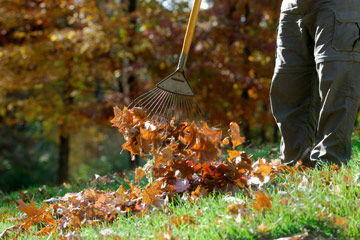What Do You Need To Do this Fall to Have a Healthy Gainesville Lawn?
Preparing your Gainesville lawn for the winter season is a critical step toward achieving the healthy green weed-free lawn every homeowner longs for. But fall lawn care doesn’t have to be complicated.
 No matter whether you have St. Augustine or Zoysia grass, this fall is the best time to ensure next year’s lawn growing season is a successful one. The important checklist items are the same regardless of what grass you have, with slight variations.
No matter whether you have St. Augustine or Zoysia grass, this fall is the best time to ensure next year’s lawn growing season is a successful one. The important checklist items are the same regardless of what grass you have, with slight variations.
- Fertilize. Promoting healthy grass root growth now is the best way to protect against opportunistic weeds and insects, and will give your lawn a head start for the next growing season. Be sure to use a lawn fertilizer especially formulated for winterization, or hire a professional Gainesville Lawn Fertilization Company to do it for you. The fertilizer is best applied before the grass stops growing – and as always, the right combination of quick- and slow-release components are critical.
- Water. Just because the summer heat has started to dissipate doesn’t mean your lawn doesn’t need to be watered. Lawns in Gainesville, Florida should generally continue to be irrigated every two or three weeks as long as the ground temperature is above freezing, which is practically year-round in Alachua County.
- Sod. Take this opportunity to install new sod on any bare spots in your lawn. Most people want to do this in spring, but because our winters are fairly moderate, we recomend fall sod installation to allow the most time for root development before taking on the triple digit summer heat.
- Maintain. Don’t forget to keep your lawn mowed at the correct height as you prepare for the winter. Although the cooler weather means slower growth, it’s important that your lawn be long enough to sustain and grow deep roots throughout fall and into January bfroe it goes dormant.
One more important fall lawn care topic concerns whether or not to rake or mulch leaves. Much of the confusion results from the fact that there are benefits to both.
We recomend that it is beneficial to mulch a thin layer of leaves, which will decompose, adding organic matter to your soil and providing some additional protection from the elements without adding excessive weight. However, mulching too many leaves (such as from Sycamore and Live Oak trees) can choke out a lawn and need to be removed except for a moderate amount.


